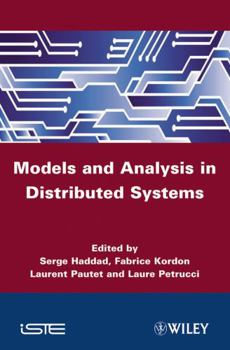Models and Analysis for Distributed Systems
Select Format
Select Condition 
Based on Your Recent Browsing
Book Overview
Nowadays, distributed systems are increasingly present, for public software applications as well as critical systems. software applications as well as critical systems. This title and Distributed Systems: Design and Algorithms - from the same editors - introduce the underlying concepts, the associated design techniques and the related security issues. The objective of this book is to describe the state of the art of the formal methods for the analysis of distributed systems. Numerous issues remain open and are the topics of major research projects. One current research trend consists of profoundly mixing the design, modeling, verification and implementation stages. This prototyping-based approach is centered around the concept of model refinement. This book is more specifically intended for readers that wish to gain an overview of the application of formal methods in the design of distributed systems. Master's and PhD students, as well as engineers in industry, will find a global understanding of the techniques as well as references to the most up-to-date works in this area.
Format:Hardcover
Language:English
ISBN:184821314X
ISBN13:9781848213142
Release Date:July 2011
Publisher:Wiley-Iste
Length:356 Pages
Weight:1.40 lbs.
Dimensions:0.9" x 6.2" x 9.2"
Customer Reviews
5 customer ratings | 5 reviews
There are currently no reviews. Be the first to review this work.





















